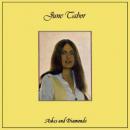On rides a captain and 300 soldier lads
Out of the morning mist and thro' the silent snow
Whistling gaily rides the captain at their head
Behind him soldier boys sadly weeping go
O lads of mine weep no more
You are gone to kill and die
For when you took my gold and swore to follow me
You sold away your lives and your liberty
No more you'll till the soil, no more you'll work the land
No more to the dance you'll go and take girls by the hand
O mother weep for your son
He is gone to kill and die
You'll weep, you'll die by the keen edge of the sword
You'll all go in the fire there'll be no hiding place
O mother hear the drumbeat in the village square
O mother that drums for me to go for a soldier there
Mothers sisters wives, weep for us
Marked as Cain we lie alone
Out of the morning mist and thro' the silent snow
Whistling gaily rides the captain at their head
Behind him soldier boys sadly weeping go
O lads of mine weep no more
You are gone to kill and die
For when you took my gold and swore to follow me
You sold away your lives and your liberty
No more you'll till the soil, no more you'll work the land
No more to the dance you'll go and take girls by the hand
O mother weep for your son
He is gone to kill and die
You'll weep, you'll die by the keen edge of the sword
You'll all go in the fire there'll be no hiding place
O mother hear the drumbeat in the village square
O mother that drums for me to go for a soldier there
Mothers sisters wives, weep for us
Marked as Cain we lie alone
Contributed by Alessandro - 2009/9/23 - 13:46
Dal titolo sembrerebbe che ci sia un preciso riferimento alla battaglia di Mohács del 29 agosto 1526 tra l'esercito ungherese e quello ottomano, che riportò una vittoria schiacciante. Ne sai qualcosa di più?
Riccardo Venturi - 2009/9/23 - 17:43
Beh, qualcosa con l'Ungheria c'azzecca, perchè Irvine dice che la canzone fu raccolta da Béla Bartók in Romania. Poi, lui e l'amica Jane Cassidy, la riscrissero e la musicarono con il motivo di una danza bulgara... Siamo sempre da quelle parti, giusto?
Però leggo che di battaglia a Mohács ce n'è stata una anche nel 1687, dove invece gli Ottomani se lo pigliarono nel gnau...
Però leggo che di battaglia a Mohács ce n'è stata una anche nel 1687, dove invece gli Ottomani se lo pigliarono nel gnau...
Alessandro - 2009/9/23 - 18:49
Io conoscevo la battaglia di Mohács del 1526, quella dove nel baugìgi lo presero i magiari; ma si vede che gli piaceva proprio sbudellàssegnene in quella piana che mi vide buttato fuor di classe, al liceo, perché alla professoressa di storia che insisteva a dire "Mohàx", dopo la 40° volta che lo diceva feci presente che si pronuncia "Mòhaach". Non la prese bene e volai fuori. Anche a 16 anni ero un pignuolo, 'nzomma :-)
Riccardo Venturi - 2009/9/23 - 19:19
Riccardo, ma da dove esce il termine "baugìgi"?
Me lo racconti? Perchè mi fa troppo ridere (e scommetto che non ha radici norrene o gutniche)
Me lo racconti? Perchè mi fa troppo ridere (e scommetto che non ha radici norrene o gutniche)
Alessandro - 2009/9/24 - 16:01
In effetti non ha radici gutniche, ma puramente labròniche. Si narrano molte leggende sull'origine della parola: tra queste quella di un signore che, al mercato di piazza 'Avallotti, si trovava in fila a una bancarella davanti a una signora con un cagnolino che abbaiava di continuo. Il cagnolino, che si chiamava per l'appunto Gigi, proprio non la smetteva, con la padrona che gli diceva: "Gigi stai buono! Gigi di qui, Gigi di là"; al che il signore, stanco sia del cane che della signora, s'abbassò i pantaloni, mostrò inchinandosi il deretano sia al cane che alla padrona urlando: "Bau, Gigi!". Così almeno me l'hanno raccontata, ma se da queste parti incrocia Pardo Fornaciari forse saprà dirne di più...
Riccardo Venturi - 2009/9/24 - 18:21
×
![]()
Note for non-Italian users: Sorry, though the interface of this website is translated into English, most commentaries and biographies are in Italian and/or in other languages like French, German, Spanish, Russian etc.






Album "No More To The Dance"
Secondo quanto viene asserito qui, si tratterebbe di una canzone composta da Andy Irvine e Jane Cassidy, ma certamente non nei primi anni '90...